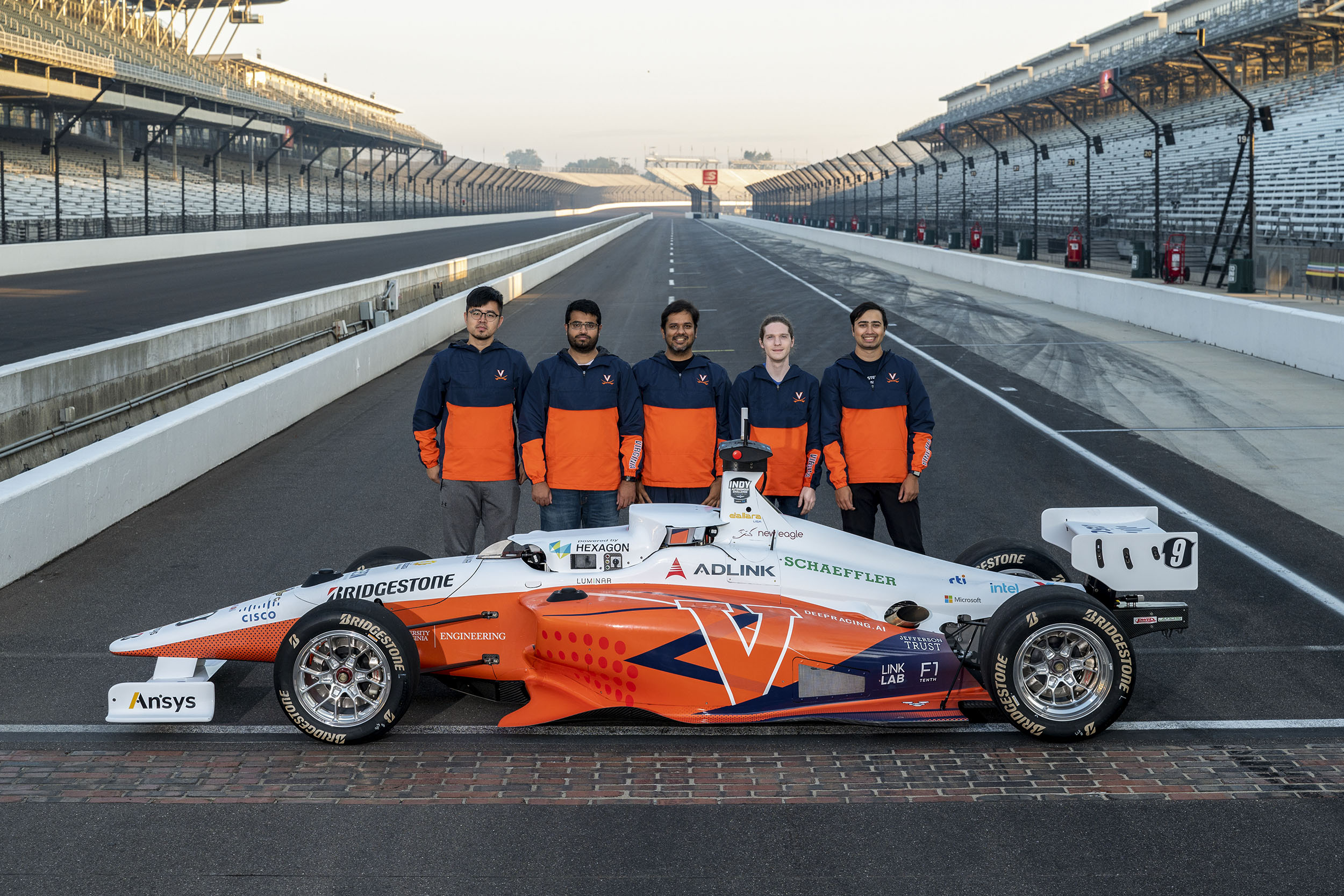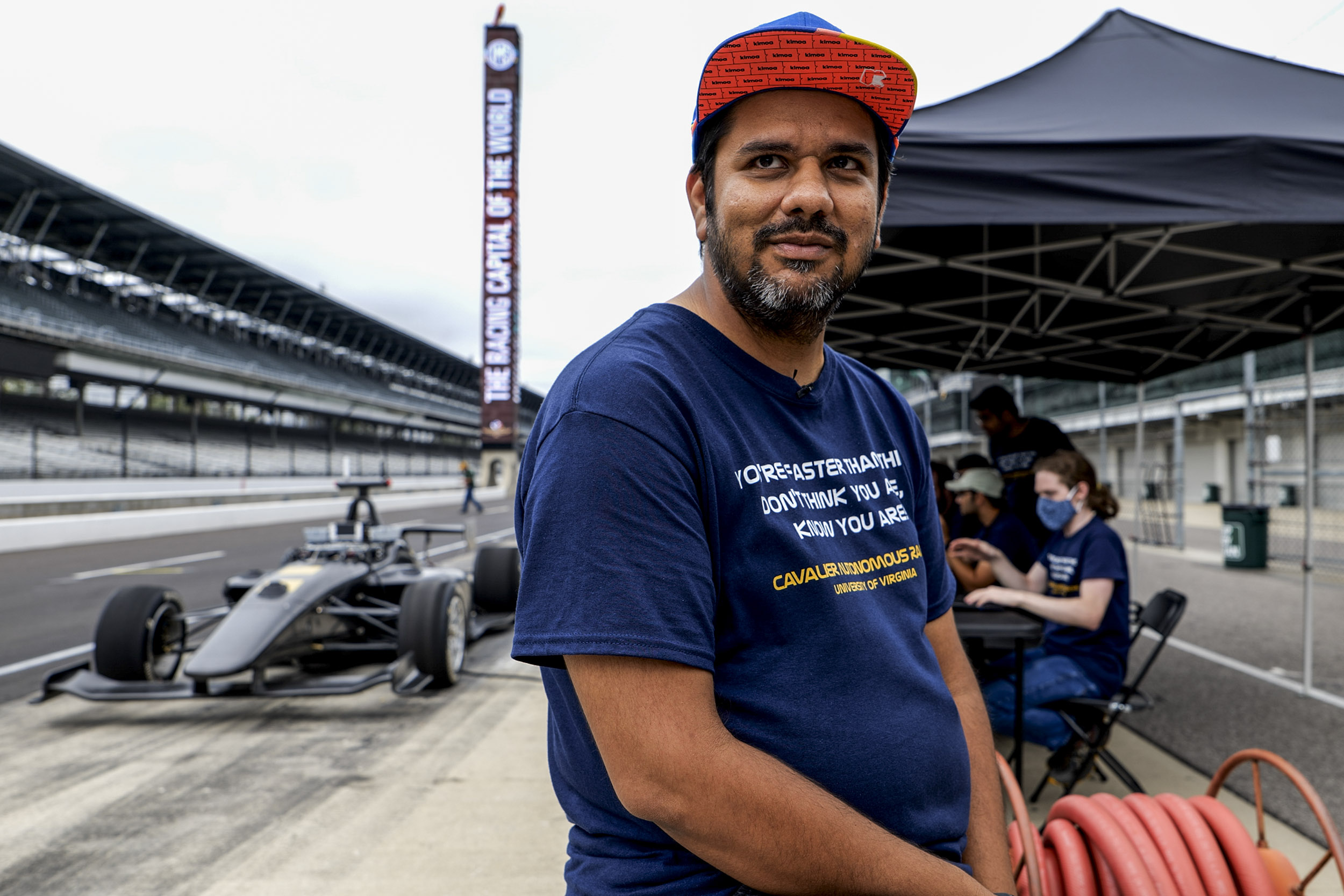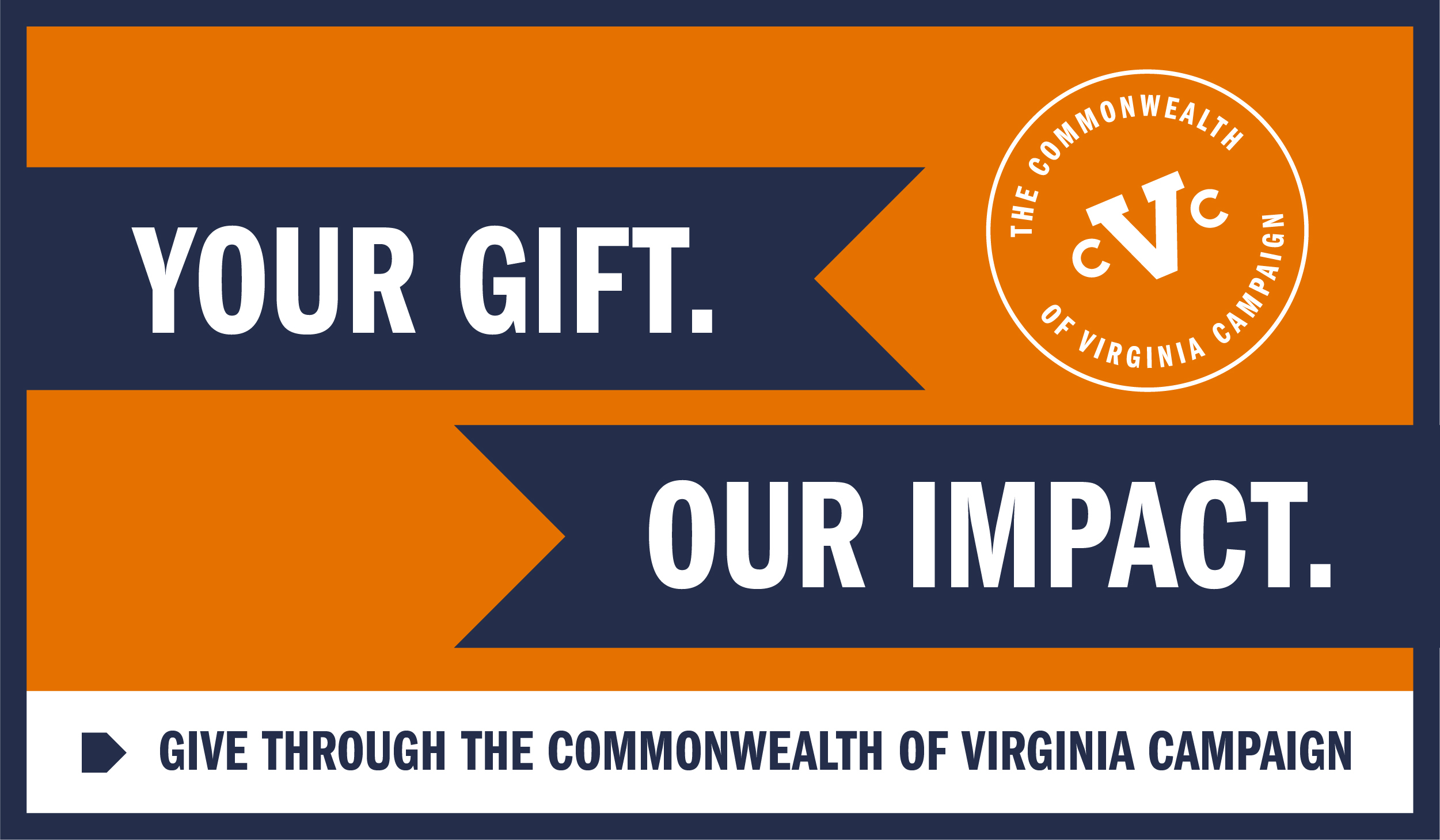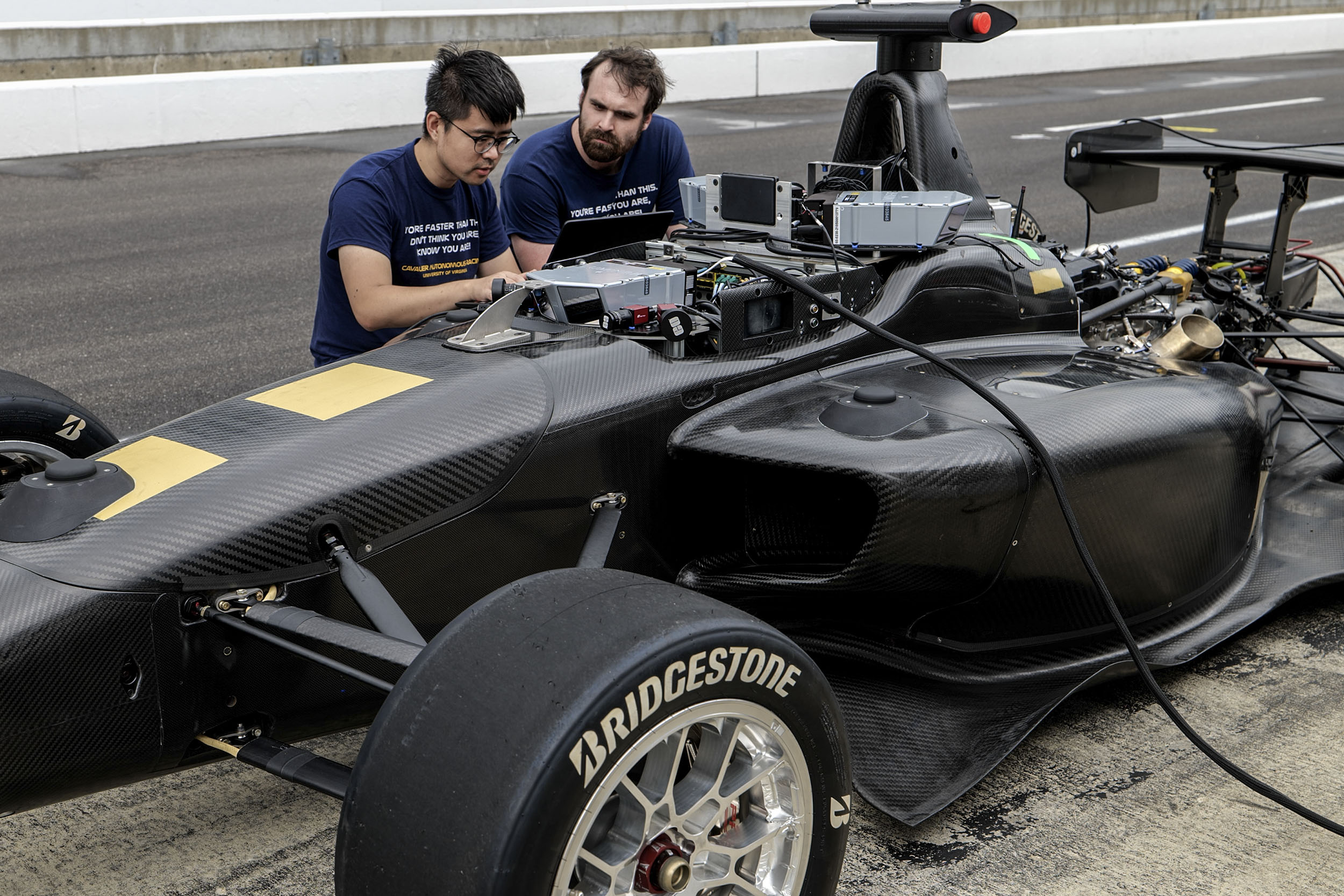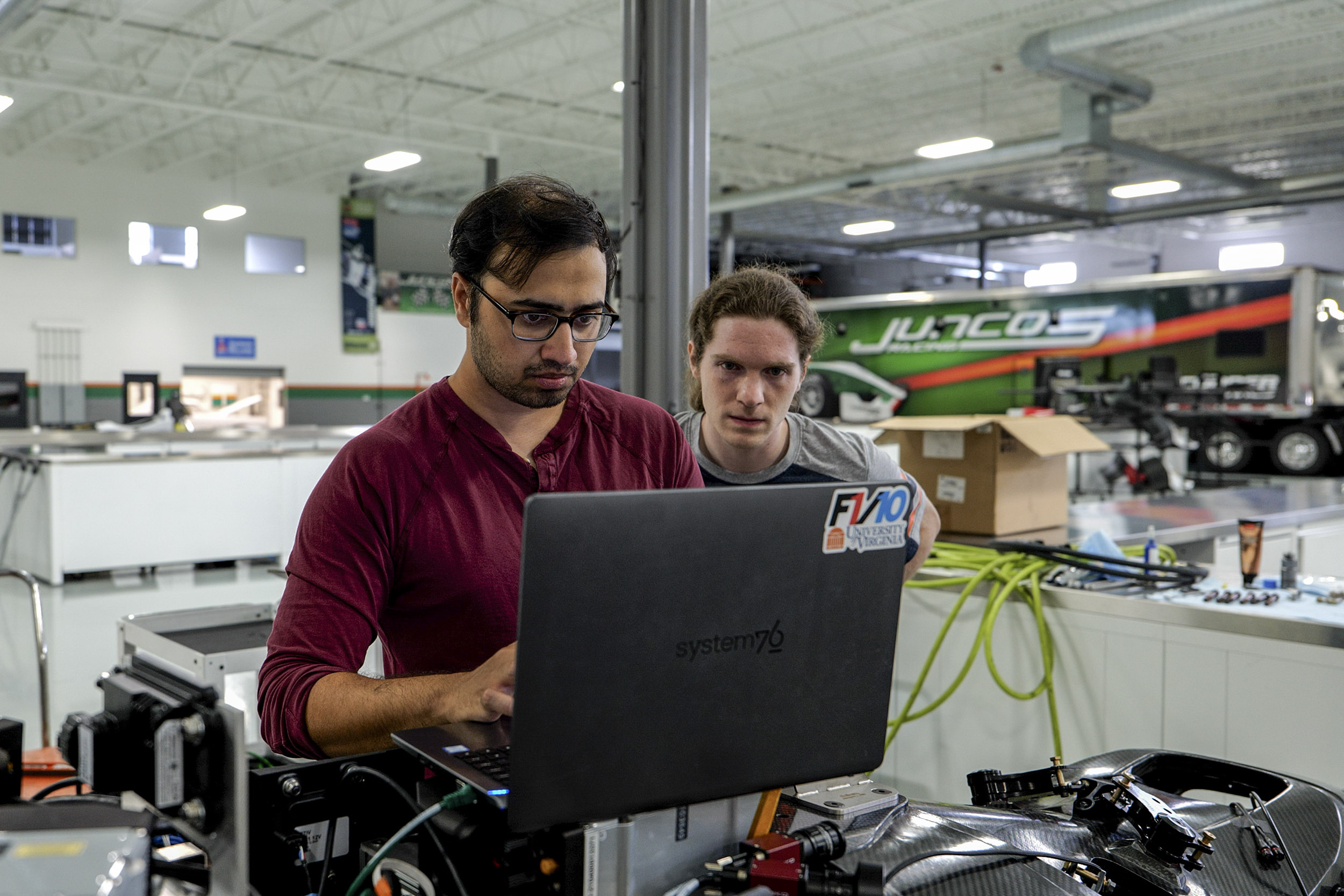When lights flash and flags wave at Indianapolis Motor Speedway this weekend, one iconic scene will be missing: race car drivers with helmets and bright-colored safety suits poking up from the cockpits of their rockets on wheels.
On Saturday, the speedway will host the first-ever race with self-driving cars. The University of Virginia School of Engineering and Applied Science’s Cavalier Autonomous Racing team is one of only nine university teams from around the world that have qualified to compete for a $1 million prize in the Indy Autonomous Challenge Powered by Cisco.
The race will be livestreamed on Saturday from 1 to 4:30 p.m. The UVA Engineering students and faculty adviser Madhur Behl, an assistant professor in the departments of Computer Science and Engineering Systems and Environment, have shared their yearlong preparation for this weekend’s race in a video documentary series called “Look Ma, No Hands!” produced by the Engineering School.
“What better way to explore the limits of self-driving cars, and really test the limits of artificial intelligence and control and robotics, than head-to-head autonomous racing, which has never been attempted before?” said Behl, a member of UVA Engineering’s Link Lab for cyber-physical systems and co-founder of an early precursor to this weekend’s event, the F1/10 International Racing Competitions. “Motorsports have always been the proving grounds for safe and upcoming technologies for automobiles.”
